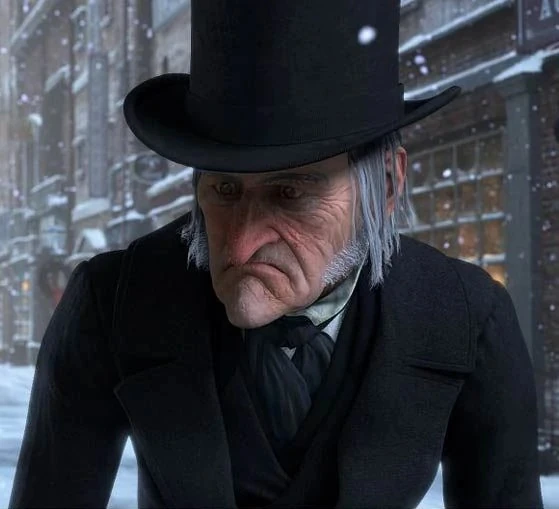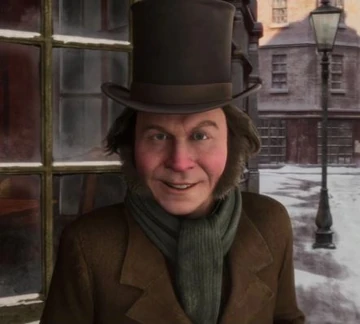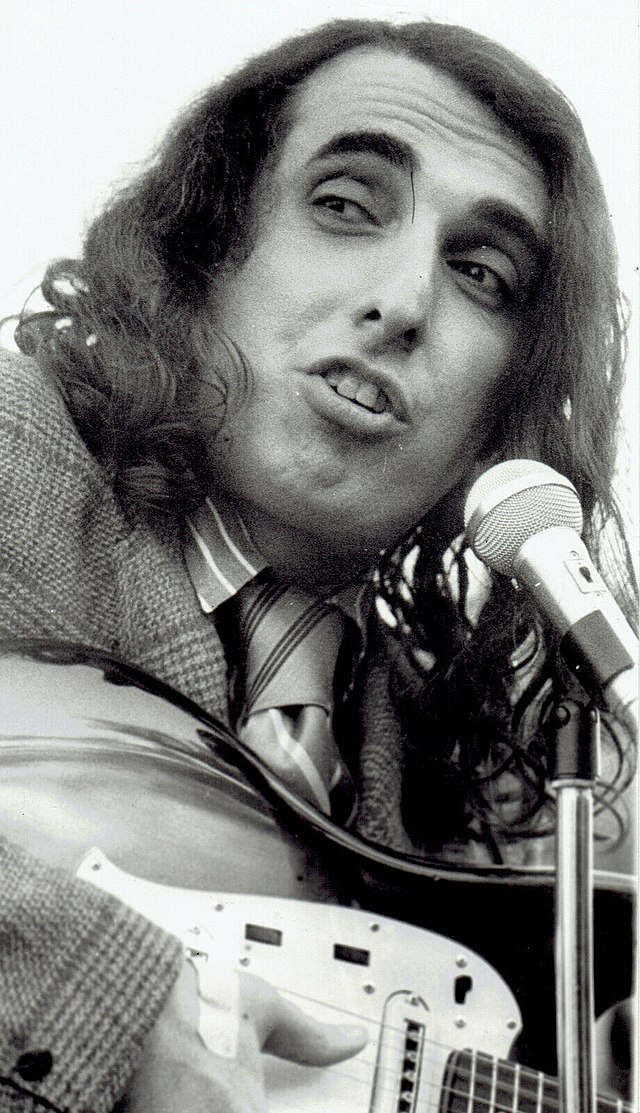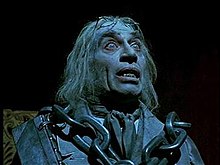Photo AI
Last Updated Sep 27, 2025
A Christmas Carol: Characters Simplified Revision Notes for GCSE Edexcel English Literature
Revision notes with simplified explanations to understand A Christmas Carol: Characters quickly and effectively.
460+ students studying
A Christmas Carol: Characters
Key Characters in A Christmas Carol
- Ebenezer Scrooge
- Bob Cratchit
- Tiny Tim
- Jacob Marley
- The Ghost of Christmas Past
- The Ghost of Christmas Present
- The Ghost of Christmas Yet to Come
- Fred
Ebenezer Scrooge
Quote: "If they would rather die, they had better do it, and decrease the surplus population."
Analysis: Scrooge's cold and uncaring nature is clear in this quote. He sees the poor as a burden, showing no empathy for their struggles. Dickens uses Scrooge to criticise the selfish attitudes of the wealthy in Victorian society. The word "surplus" is especially harsh, making people sound like excess goods that can be disposed of. This line sets up the dramatic change in Scrooge's character later in the story, where he learns that every life has value.

Quote: "I will honour Christmas in my heart, and try to keep it all the year."
Analysis: This quote marks Scrooge's turning point, where he commits to embracing the true spirit of Christmas—kindness, generosity, and caring for others—not just during the holiday, but all year round. Dickens uses this moment to show that Scrooge's change is sincere and deep. It also highlights the novella's message that it's never too late to change and become a better person.
Bob Cratchit

Quote: "I'll give you Mr Scrooge, the Founder of the Feast!"
Analysis: Even though Scrooge treats him poorly, Bob Cratchit still toasts him, showing Bob's kindness and gratitude. Dickens uses Bob to represent the hardworking, humble poor who maintain their dignity and compassion despite their hardships. This moment also shows the sharp contrast between Bob's generous spirit and Scrooge's greed. Bob's character helps to highlight that true goodness comes from within, not from wealth or status.
Quote: "My little, little child!" cried Bob. "My little child!"
Analysis: Bob's grief over Tiny Tim's possible death reveals how deeply he loves his son. The repetition of "little" emphasises Tiny Tim's innocence and vulnerability, making his loss feel even more tragic. Dickens uses this emotional moment to criticise society's neglect of the poor and to show the human cost of social inequality. Bob's sorrow also highlights the novella's focus on the importance of family and the deep bonds that keep the Cratchits strong through their struggles.
Tiny Tim
Quote: "God bless us, every one!"
Analysis: Tiny Tim's simple blessing reflects his pure-hearted nature and his ability to wish well for everyone, despite his hardships. Dickens uses Tiny Tim as a symbol of innocence and the impact of society's neglect on the most vulnerable. Tiny Tim's words remind both the characters and the readers of the importance of compassion and caring for those who are less fortunate. His character serves as a powerful example of the novella's message about the value of kindness and social responsibility.
Quote: "I see a vacant seat... and a crutch without an owner, carefully preserved."

Analysis: The Ghost of Christmas Present's vision of Tiny Tim's potential death serves as a stark warning about the consequences of society's neglect of the poor. The "vacant seat" and "crutch without an owner" are symbols of loss and the impact of poverty. Dickens uses this image to evoke sympathy and to push Scrooge (and the reader) to understand the importance of taking action to help others. It's a crucial moment that drives Scrooge's transformation as he realises the real effects of his selfishness.
Jacob Marley
Quote: "I wear the chain I forged in life."
Analysis: Marley's chains represent the consequences of his greedy and selfish choices during his life. Dickens uses Marley to show that our actions have lasting effects, even after death. The chains are a powerful symbol of guilt and regret, serving as a warning to Scrooge about the fate that awaits him if he doesn't change. Marley's suffering highlights the novella's theme that moral and social responsibility should guide our actions, rather than the pursuit of wealth alone.

Quote: "Mankind was my business."
Analysis: Marley's realisation that he should have cared more about people than money is a key moral lesson in the novella. The word "business" is ironic here; Marley focuses on making money, but he now understands that his true duty is to help others. Dickens uses Marley's regret to show that a life focused only on personal gain is ultimately empty and leads to eternal suffering. Marley's warning encourages Scrooge to change before it's too late.
The Ghost of Christmas Past
Quote: "These are but shadows of the things that have been. They have no consciousness of us."
Analysis: The Ghost of Christmas Past takes Scrooge on a journey through his earlier life, showing him how he became the man he is. The idea of "shadows" suggests that these are only reflections of the past, but they are still powerful enough to affect Scrooge deeply. Dickens uses this ghost to explore how past experiences shape a person's character and to show Scrooge that understanding his past is key to changing his future.
Quote: "Would you so soon put out, with worldly hands, the light I give?"
Analysis: This quote from the Ghost of Christmas Past challenges Scrooge to confront the truth of his past instead of trying to ignore or forget it. The "light" represents the truth and the clarity that comes with facing reality. Dickens uses this moment to show that growth and redemption require acknowledging and learning from one's past mistakes. Scrooge's journey with this ghost is the first step in his transformation.
The Ghost of Christmas Present
Quote: "This boy is Ignorance. This girl is Want. Beware them both, and all of their degree, but most of all beware this boy, for on his brow I see that written which is Doom."
Analysis: The Ghost of Christmas Present introduces Scrooge to Ignorance and Want, two children who symbolise society's neglect of the poor. "Ignorance" and "Want" represent the root causes of many social problems, and the ghost warns that ignoring these issues will lead to disaster ("Doom"). Dickens uses this powerful image to criticise the way society turns a blind eye to the suffering of the less fortunate and to stress the importance of addressing social injustices.
Quote: "They are Man's... And they cling to me, appealing to their fathers. This boy is Ignorance and this girl is Want; beware them both."
Analysis: The Ghost of Christmas Present's warning about Ignorance and Want emphasises the responsibility that society has in caring for its most vulnerable members. The fact that these children "cling" to the ghost suggests that these issues are ever-present and cannot be ignored. Dickens uses this to show the consequences of neglect and to urge people to take action to prevent suffering and injustice.
The Ghost of Christmas Yet to Come
Quote: "The Spirit was immovable as ever."
Analysis: The Ghost of Christmas Yet to Come is silent and mysterious, representing the unknown future. The spirit's unyielding nature reflects the idea that the future is shaped by present actions but is also inevitable if no changes are made. Dickens uses this ghost to instill fear in Scrooge, showing him the grim consequences of his current lifestyle. The ghost's silence and stillness create a sense of dread, pushing Scrooge to take responsibility for his actions.
Quote: "Are these the shadows of the things that Will be, or are they shadows of things that May be, only?"
Analysis: Scrooge's desperate question about the Ghost of Christmas Yet to Come shows his fear and his hope that he can still change his fate. The difference between "Will be" and "Maybe" highlights the possibility of redemption—Scrooge realises that his future is not set in stone and that he has the power to change it. Dickens uses this moment to emphasise the novella's central message: it's never too late to change and to make amends for past wrongs.
Fred
Quote: "I have always thought of Christmas time... as a good time; a kind, forgiving, charitable, pleasant time."
Analysis: Fred's positive view of Christmas contrasts sharply with Scrooge's initial bitterness. Fred embodies the true spirit of Christmas—kindness, generosity, and joy. Dickens uses Fred to represent the values that Scrooge needs to embrace. Fred's unwavering cheerfulness and goodwill serve as a foil to Scrooge's miserliness, highlighting the novella's message that Christmas should be a time for compassion and community.
Quote: "His wealth is of no use to him. He doesn't do any good with it."
Analysis: Fred's observation about Scrooge's wealth shows that having money without using it to help others is meaningless. Dickens uses Fred to voice the novella's criticism of greed and selfishness. Fred's point is that wealth should be used for the greater good, not hoarded away. This idea is central to Scrooge's transformation, as he learns to use his resources to bring happiness to others, rather than keeping it all to himself.
500K+ Students Use These Powerful Tools to Master A Christmas Carol: Characters For their GCSE Exams.
Enhance your understanding with flashcards, quizzes, and exams—designed to help you grasp key concepts, reinforce learning, and master any topic with confidence!
60 flashcards
Flashcards on A Christmas Carol: Characters
Revise key concepts with interactive flashcards.
Try English Literature Flashcards6 quizzes
Quizzes on A Christmas Carol: Characters
Test your knowledge with fun and engaging quizzes.
Try English Literature Quizzes3 questions
Exam questions on A Christmas Carol: Characters
Boost your confidence with real exam questions.
Try English Literature Questions3 exams created
Exam Builder on A Christmas Carol: Characters
Create custom exams across topics for better practice!
Try English Literature exam builder30 papers
Past Papers on A Christmas Carol: Characters
Practice past papers to reinforce exam experience.
Try English Literature Past PapersOther Revision Notes related to A Christmas Carol: Characters you should explore
Discover More Revision Notes Related to A Christmas Carol: Characters to Deepen Your Understanding and Improve Your Mastery
96%
114 rated
A Christmas Carol
A Christmas Carol: Writer's Methods & Techniques
373+ studying
186KViews